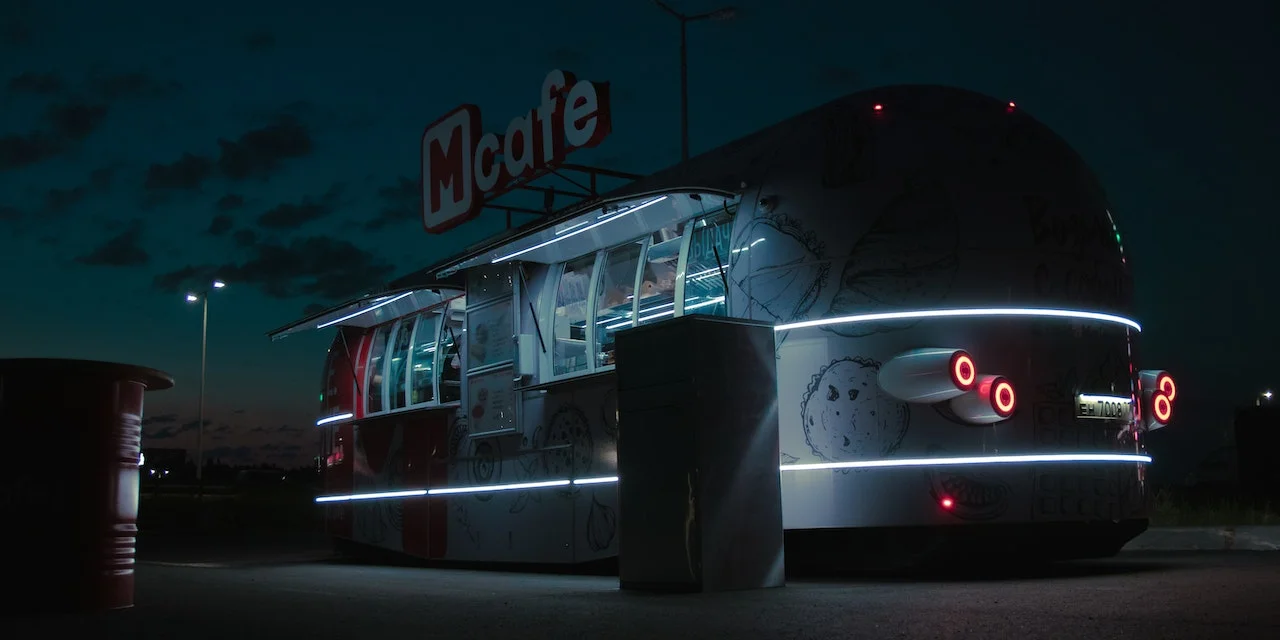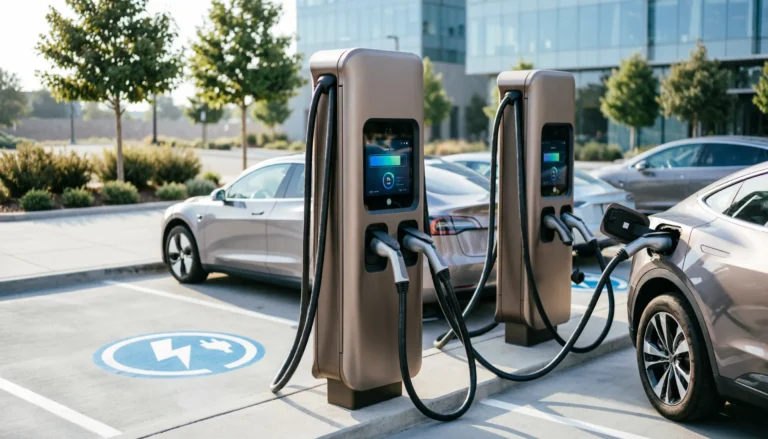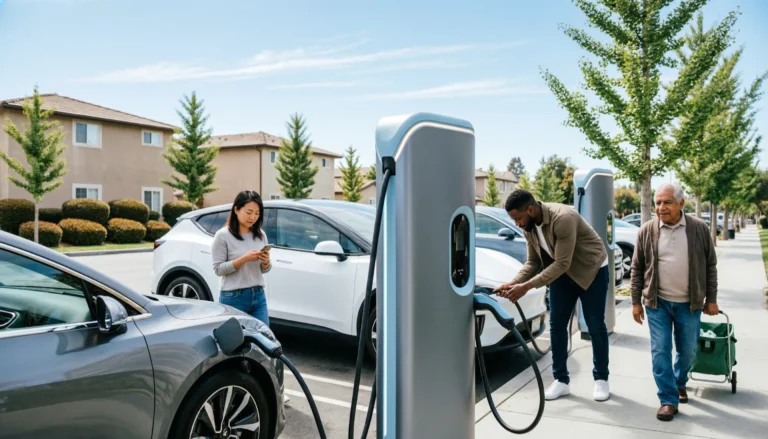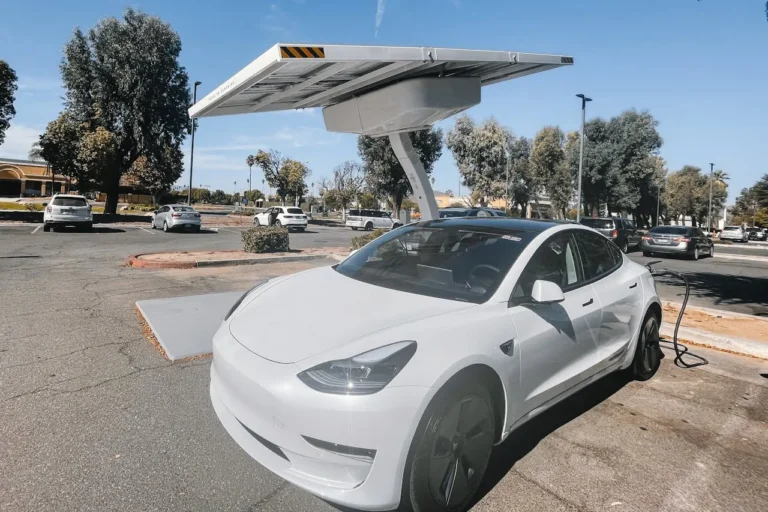
One Energy Enterprises Inc. (“One Energy”), has unveiled the initial configuration and energization of its 30 megawatt (MW) electric semi-truck fleet charging site, located at its first Megawatt Hub in Findlay, Ohio. The company’s innovative Power Island™ concept demonstrates how One Energy plans to configure electric semi-truck charging infrastructure to concurrently support multiple corporate trucking fleet operators.
The Findlay Megawatt Hub is the largest constructed or publicly announced truck charging site in the United States in terms of available charging capacity. The site power system can accommodate up to 30 MW of charging in today’s configuration.
One Energy plans to utilize a radial charging configuration to optimize overall site efficiency, allowing multiple corporate customers to customize charging operations and equipment to their specific fleet’s needs. The site currently has fully functional capacity at medium and low voltages. One Energy has developed patent-pending physical systems to optimize its radial truck charging configuration and is working with charging equipment manufacturers to be ready to deploy both multiplatform and OEM-specific charging solutions that match individual truck needs and charging rates as the trucks are sold.
A new concept video showcasing the Power Island™ configuration by One Energy is embedded into this press release and is also available on One Energy’s Investor Relations site: https://oneenergy.com/investors/
Jereme Kent, CEO of One Energy, said, “From its inception, the electric semi-industry had an obvious chicken and egg problem. Truck manufacturers and fleet operators need to be able to charge at scale before they can move forward with deploying electric trucks at scale. This Megawatt Hub configuration solves that problem. The power is already on-site, at the right voltage, and we can outfit and energize custom Power Island™ configurations with the necessary charging equipment in weeks or months, not years.”
The electric semi-truck manufacturing industry has stated that a serious impediment to customer adoption of electric fleets has been getting enough power at the correct voltage from the grid to allow customers to connect their chargers. One Energy designed this site to solve that problem by delivering charger-ready power at scale. A 138,000-volt transmission line serves the Findlay Megawatt Hub. One Energy’s facility has the capacity to charge 90 trucks concurrently (based on a typical 300-kW charge rate). The company expects to obtain direct access to transmission service pricing to provide some of the lowest-cost energy available in the United States. In addition, the site design allows it to host behind-the-meter renewable energy generation from wind and solar as demand at the site matures.
Dana Saucier, Head of Economic Development for JobsOhio, said, “Ohio has proudly led the charge in manufacturing and logistics for over a century and we’re positioned to lead for another century with pioneering projects like One Energy’s new electric semi-truck charging site in Findlay. Our state boasts some of the most competitive power costs in the world and a robust high-voltage transmission infrastructure. Unlike some states, we don’t need to wait years or rely on mandates and subsidies to advance the electrification of logistics. This site is a testament to that fact. Simply put, Ohio is fast becoming the Silicon Valley of energy innovation.”
The Findlay Megawatt Hub was built by One Energy with its own capital and without government subsidies or grants. One Energy received no utility incentives for the site. Thomas Lause, CFO of One Energy, explained, “Capital markets are good at building the second and third projects after the pilot has proven successful, but they have always struggled with underwriting the first one. Because we are confident in the solution and the technology, we decided not to wait. We just built it. Now we have a functioning site to show capital markets.”
Kent concluded, “We are throwing down a gauntlet to jumpstart the electric semi-industry. We have already built full-scale, cost-effective charging that can serve multiple end-users. We have done it in the manufacturing center of the United States, where there are numerous local and regional truck routes. Now we are excited to see the electric semi manufacturers deliver.”
The Megawatt Hub by the Numbers:
- 30 megawatts = 30,000 kilowatts
- 90 x 300kW chargers concurrently or 30 x 1 MW chargers concurrently
- 720,000 kilowatt hours a day of capacity
- Up to 1,000 x 500kWh battery charges a day







